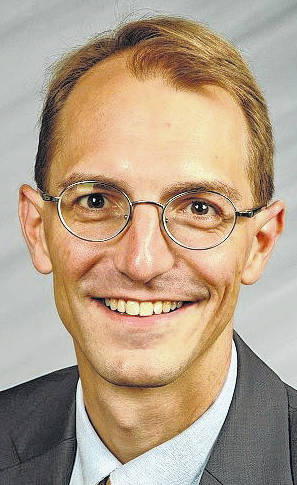
“It could not but surprise us to hear, that our old Friends were on a sudden become our cruel Enemies.”
“By refusing our Bills from Time to Time, he has rejected all the Strength that Money could afford him; and if his Hands are still weak or unable, he ought only to blame himself.”
— Pennsylvania Assembly in reply to governor on Nov. 11, 1755
As Americans, we rightly look, in times of trouble or distress, to the writings of those people who were crucial in the founding of our nation. We look closely at their words, trying to discern how their wisdom might lead us through our current troubles. But all too often, we simply take their words and use them to support whatever conclusion we’ve already reached or are trying to reach.
Such is the case with one of the most famous quotations attributed to America’s first “Renaissance Man,” Benjamin Franklin. There is no doubt that Franklin was a fascinating character and a man of nearly unlimited talents. His role as a publisher also means that we have reams of writings attributed to him.
Aside from the sayings published in his almanac (things like “an ounce of prevention is worth a pound of cure,” and “glass, china, and reputation are easily cracked and never well mended”), one of Franklin’s most often repeated quotes in the last several decades is one that was largely forgotten in the middle of the 20th Century when it appeared in a 1947 book, and then in the Broadway musical and movie “1776.”
It’s a quote that we’re not even sure is his.
The quote is from a November 1755 letter sent by the legislature of the Colony of Pennsylvania to the colonial governor. The French and Indian War had begun, and Native Americans in the western frontier of Pennsylvania had sided with the French. The governor wanted to raise funds, the legislature asked for more information, and the governor refused. In response, the legislature wrote back, and in the letter back is the sentence, “Those who would give up essential Liberty, to purchase a little temporary Safety, deserve neither Liberty nor Safety.”
It has been used across the political spectrum for years. Anti-war protestors have used it to attack support for foreign conflicts. Advocates of personal freedom have used it to attack domestic surveillance actions. And recently, it has been used to attack mandatory health orders during the COVID-19 pandemic. But, like many uses of famous quotations, each of those purposes has little to do with what the 1755 letter was actually talking about.
That’s because the real dispute between the legislature and the colonial governor was about whether the taxation bill could tax the lands of the Penn family, who had founded the colony. The legislature thought it should, and the governor, siding with the Penn family, said that they were exempt and should instead contribute a lump sum of money. The quote, then, is actually pro-taxation — supporting the legislature’s right to tax its citizens. The “temporary safety” is the safety the Penns are purchasing through their donation, the essential liberty given up is the right of a people to control their own destiny through an elected legislature.
The letter to the colonial governor was unsigned as it came from the legislature as a whole, but the general consensus of historians is that the writing fits that of Franklin, and that his stature in the legislature at the time suggests he at least played a vital role in writing it.
As to Franklin’s thoughts about medical advice, we can look to a letter he wrote to his parents in 1747. He had made some statements in a previous letter that they took to be contradicting the advice of their doctor. Distressed by that conclusion, he wrote in his next letter to them, “I always employ a physician myself when any disorder arises in my family, and submit implicitly to his orders in every thing, so I hope you consider my advice, when I give any, only as a mark of my good will, and put no more of it into practice than happens to agree with what your Dr. directs.”
Like most quotes of a historical nature, though, what the “safety and liberty” quote actually meant in original writing may be less important than how it helps us formulate our arguments and thoughts in the present day. In that, the “liberty for safety” quote has been remarkably flexible, meaning very different things to different people.


